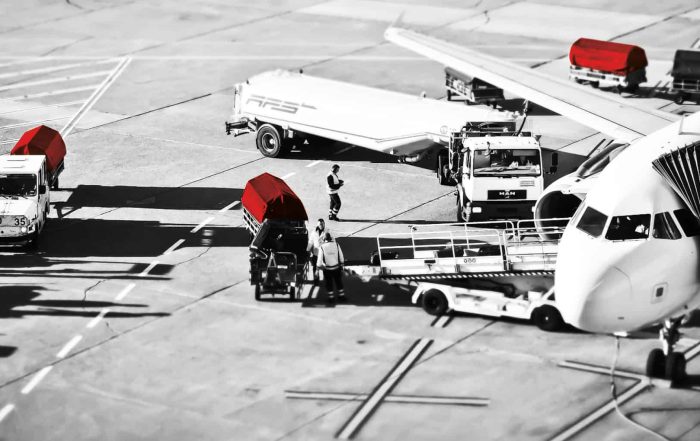In the dynamic world of global trade and logistics, risk is an unavoidable reality. From natural disasters and theft to accidents and administrative errors, cargo in transit faces a wide range of potential threats. This is where freight insurance plays a critical role.
Whether you’re moving goods by road, sea, air, or rail, understanding the different types of freight insurance — and how they protect your business — is essential for ensuring peace of mind, financial protection, and compliance.
At K&L Freight, we support clients with both freight forwarding services and the insight needed to make informed decisions about cargo protection.
What Is Freight Insurance?
Freight insurance covers goods in transit against physical loss or damage. Unlike carrier liability, which offers limited compensation based on weight or volume, freight insurance provides more comprehensive financial coverage, often up to the full value of the goods being transported. Learn more about air specific insurance from FIATA
While not always legally required, freight insurance is often essential for reducing commercial risk and ensuring supply chain continuity, especially for high-value, fragile, or international shipments.
What Are the Different Types
The right policy depends on the type of goods, mode of transport, and risk tolerance. Below are the most common categories of freight insurance:
1. All-Risk Insurance
This is the most comprehensive type of insurance. It covers most types of physical loss or damage — from fire, theft, and breakage to weather-related events — unless specifically excluded which can be found through providers like TT Club.
Best suited for:
-
High-value goods
-
Fragile cargo
-
International, multimodal shipments
2. Named Perils Insurance
This policy covers specific risks listed in the policy (e.g., fire, collision, theft). If a cause of loss isn’t named, it won’t be covered.
Best suited for:
-
Cost-conscious shippers
-
Low-risk cargo
-
Shipments within stable transport routes
3. Total Loss Only Insurance
This basic coverage applies only if the cargo is completely destroyed or lost (e.g., vessel sinks, truck burns down).
Best suited for:
-
Bulk shipments
-
Commodities with low unit value
-
Companies relying on separate risk management strategies
4. Contingency Insurance
This is a backup policy taken out by the shipper when the buyer is responsible for insurance but may fail to secure it. It activates only if a valid claim cannot be recovered under the buyer’s policy.
Best suited for:
-
Exporters with incoterms like CIF or FOB
-
B2B sellers concerned about customer insurance gaps
Freight Insurance vs. Carrier Liability
It’s crucial to understand that carrier liability is not insurance. Carriers have limited legal responsibility, usually defined by weight or international convention (e.g., CMR for road freight, Hague-Visby for sea ).
| Type | Scope | Coverage Limit |
|---|---|---|
| Carrier Liability | Basic legal obligation | Limited (e.g. £1.30/kg under CMR) |
| Freight Insurance | Voluntary, contract-based | Up to full cargo value |
Why Freight Insurance Matters
Protects Against Unforeseen Events
Even with reliable partners and excellent packaging, accidents happen. Freight insurance protects your business from losses caused by:
-
Vehicle collisions
-
Port strikes
-
Severe weather
-
Fire or flooding
-
Theft or piracy
Enhances Supply Chain Resilience
Insurance ensures that if cargo is lost or delayed, you can recover financially and continue operations. This is critical for high-value products, just-in-time inventory models, and customer satisfaction.
Required by Some Trade Agreements
Some international transactions (e.g., those using CIF incoterms) require the seller to provide minimum insurance. Not complying can void contract terms or delay customs clearance.
How K&L Freight Supports Your Insurance Needs
At K&L Freight, we help clients:
-
Choose the right type of cover
-
Understand what their carrier covers and what they don’t
-
Ensure all documents are aligned for a smooth claims process
Whether you’re shipping hazardous goods or time-sensitive cargo, our experienced team can integrate insurance seamlessly into your freight booking process.
Contact our shipping consultancy to learn more about cargo cover and risk mitigation.
FAQs About Freight Insurance
Q: Is insurance mandatory?
No — but it’s highly recommended. Many contracts, lenders, and logistics partners expect it.
Q: Can I get insurance for partial loads or groupage?
Yes. Groupage services can still be insured — you simply declare the cargo value and nature of goods.
Q: Does insurance cover delays?
Typically not. You may need delay-specific insurance or clauses depending on your provider.
Conclusion
Freight insurance is a vital tool for managing logistics risk. Whether you’re a manufacturer, exporter, or importer, the right insurance protects your business from costly disruptions and lost revenue.
At K&L Freight, we offer more than freight forwarding — we provide strategic support to ensure every shipment is protected, traceable, and backed by expertise. Need help securing the right insurance? Get in touch with K&L Freight today.
RELATED POSTS
Repatriation Logistics: Getting it Right Every Time
When a death occurs overseas, families need clear, compassionate support to arrange repatriation—the safe return of their loved one’s remains[...]
What are the Impacts of Fuel Prices on Freight Shipping Costs?
Fuel is one of the biggest cost drivers in freight. When prices swing, road, sea, air, and rail rates move[...]


